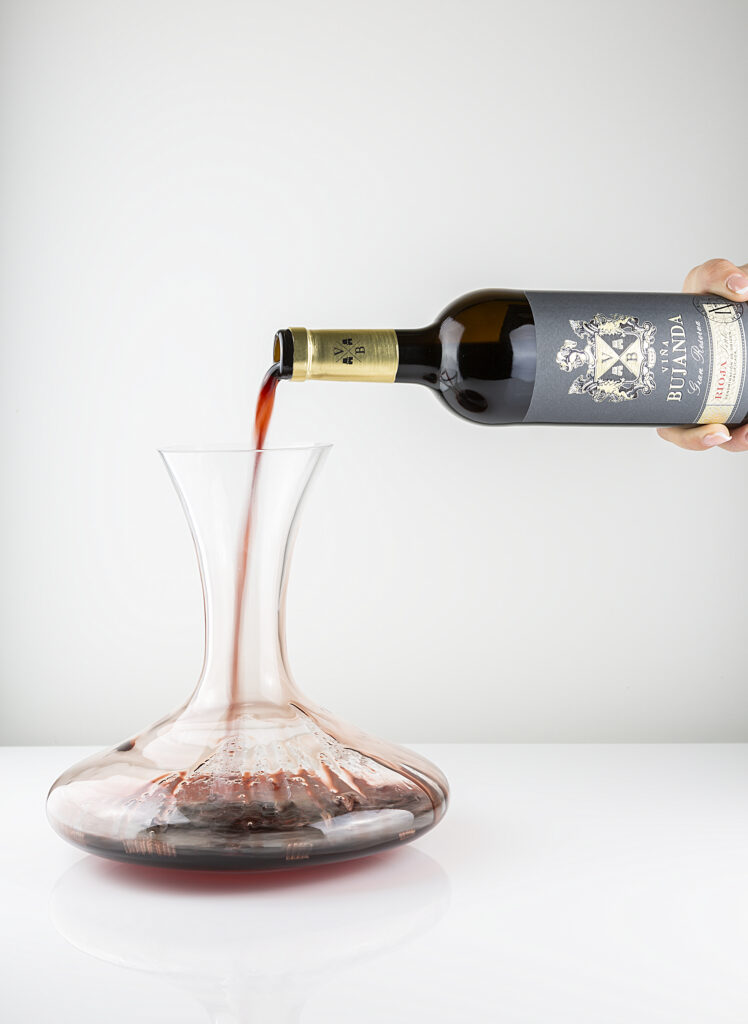To anyone who asks this question, the first thing to answer is that it is not always necessary to do so. The need varies according to different factors, but the truth is that there are three fundamental reasons why a wine should be decanted: to separate any sediment or sediment that may be in the bottle, to aerate or oxygenate it, and to open it.
In the first case, it is recommended that the wine be decanted to separate it from any sediment or sediment that the bottle may contain. These sediments are more frequently found in wines with long aging times. This is normal, typical of the oxidation or reduction processes that occur during fermentation and maturation of some wines.
When decanting the wine, the bottle should be placed in an upright position one day before it is to be consumed. This is usually necessary for wines with long aging, generally reserves and grand reserves. In this way, possible sediments can be precipitated at the bottom of the bottle by the force of gravity.
Once opened, avoid moving it too much and pour the wine carefully into the decanter, tilting it slightly. It is also important to watch the neck of the bottle and stop when you see the dregs getting closer. It should then be left to stand for a few minutes so that any sediment that may have escaped precipitates to the bottom.
Secondly, it is necessary to decant the wine to aerate or oxygenate it. When a bottle of wine of a certain ageing is opened, there are times when unpleasant odors are perceived. These odors are generated during the reduction processes and the lack of oxygen causes it to smell closed. In this case, the contact of the wine with the air causes it to aerate and then its authentic aromas appear.
In these cases, the wine should be decanted with care, as excessive oxygenation could be counterproductive. It is best to taste it first by pouring a little in a glass and allowing it to aerate for about ten minutes. If the aromas improve, the rest of the bottle is decanted, as this will allow the wine to oxygenate in a short time.
Thirdly and lastly, it is advisable to decant the wine to open it. Young wines may have a slight aromatic intensity and the decanting process serves to open them up. And here the very contact with the air favors the development of their aromatic potential. The process is the same as when the wine is swirled in the glass, which causes the oxygenation to enhance its aromas, especially the fruity nuances.




